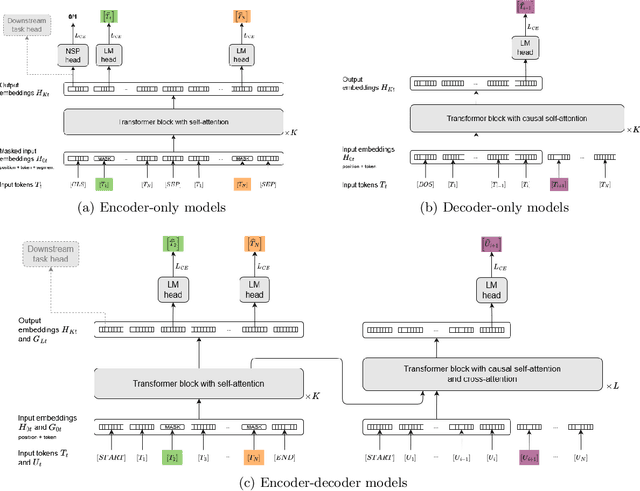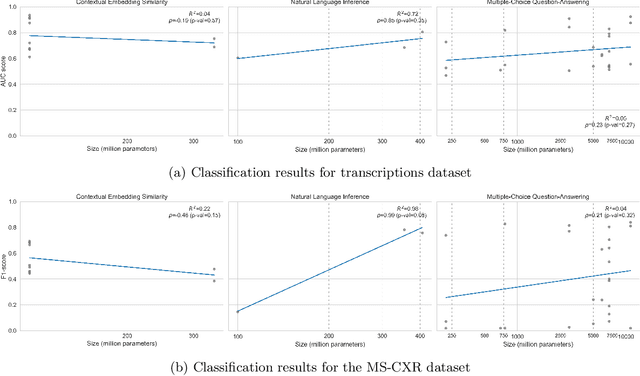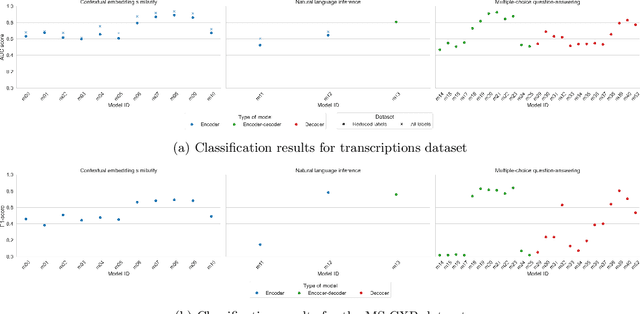Andrea Posada
Evaluation of Language Models in the Medical Context Under Resource-Constrained Settings
Jun 24, 2024



Abstract:Since the emergence of the Transformer architecture, language model development has increased, driven by their promising potential. However, releasing these models into production requires properly understanding their behavior, particularly in sensitive domains such as medicine. Despite this need, the medical literature still lacks technical assessments of pre-trained language models, which are especially valuable in resource-constrained settings in terms of computational power or limited budget. To address this gap, we provide a comprehensive survey of language models in the medical domain. In addition, we selected a subset of these models for thorough evaluation, focusing on classification and text generation tasks. Our subset encompasses 53 models, ranging from 110 million to 13 billion parameters, spanning the three families of Transformer-based models and from diverse knowledge domains. This study employs a series of approaches for text classification together with zero-shot prompting instead of model training or fine-tuning, which closely resembles the limited resource setting in which many users of language models find themselves. Encouragingly, our findings reveal remarkable performance across various tasks and datasets, underscoring the latent potential of certain models to contain medical knowledge, even without domain specialization. Consequently, our study advocates for further exploration of model applications in medical contexts, particularly in resource-constrained settings. The code is available on https://github.com/anpoc/Language-models-in-medicine.
 Add to Chrome
Add to Chrome Add to Firefox
Add to Firefox Add to Edge
Add to Edge